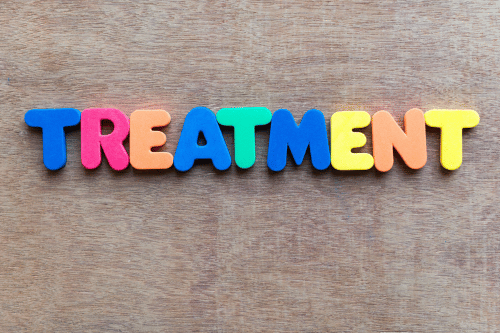

Drug treatment residential programs provide a safe and structured environment for people recovering from substance abuse. In these programs, clients live at the facility while receiving care from trained mental health professionals and medical staff. At Missouri Behavioral Health, we understand that while residential care can be effective, many clients also benefit from our outpatient treatment programs, especially after completing an inpatient stay.
Residential care in addiction recovery involves staying at a facility full-time for a set period. This setup allows people to focus fully on therapy without outside distractions. Many treatment centers offer dual diagnosis services, which address both mental health issues and substance use disorders.
Drug treatment residential programs work well for people with severe addiction or repeated relapse. They also help those facing co-occurring conditions such as anxiety, depression, or other mental health disorders. Some clients may transition from inpatient rehab to our outpatient services at Missouri Behavioral Health for continued recovery support.

Therapy is a core part of residential care. Clients attend individual sessions with a mental health professional and group meetings to build coping skills. Missouri Behavioral Health also offers outpatient therapy so clients can continue progress after leaving a treatment center.
Many drug treatment residential programs offer dual diagnosis services. This means treating both substance abuse and mental health conditions at the same time. Combining psychiatry, counseling, and medical care improves long-term health outcomes.
Psychiatry plays a key role in many treatment programs, especially for clients with anxiety or mood disorders. Medications may help manage symptoms while therapy addresses behavioral patterns. Our outpatient care at Missouri Behavioral Health offers the same integrated mental health and addiction services to prevent relapse.
Residential care is not just for drug use—it is also highly effective for alcohol addiction. Many people struggling with alcohol use disorder also face mental health challenges. Both issues can be addressed in a single treatment center through medical detox, therapy, and structured daily routines.
Relapse is common in early recovery, but residential care reduces this risk by providing 24/7 supervision. Clients are removed from environments where abuse of drugs or alcohol is common. Transitioning to Missouri Behavioral Health’s outpatient program helps maintain accountability after leaving inpatient rehab.

In drug treatment residential settings, education is as important as therapy. Clients learn about how substance abuse affects the brain, body, and mental health. They also develop coping strategies to handle stress without returning to harmful substance use.
Paying for drug treatment residential programs can be easier with the right health insurance plan. Many treatment centers accept private insurance as well as Medicaid or Medicare. Missouri Behavioral Health can help verify health insurance benefits for clients seeking either inpatient or outpatient care.
Inpatient rehab offers 24/7 residential care, while outpatient programs allow clients to live at home. Both options provide therapy and access to mental health professionals. Many clients begin with inpatient treatment and then move into Missouri Behavioral Health’s outpatient services for continued recovery.
A dual diagnosis occurs when someone has both substance abuse and a mental health condition like anxiety or depression. Drug treatment residential programs address both through psychiatry, medication management, and counseling. Our outpatient center in Springfield, Missouri, offers the same services for ongoing support.
Alcohol abuse can worsen mental health conditions and increase the risk of relapse. In residential care, clients work with mental health professionals to identify triggers and create safe coping strategies. Outpatient therapy at Missouri Behavioral Health continues this work after inpatient rehab.
Having a qualified mental health professional is critical in drug treatment residential care. They guide therapy, manage medications, and monitor progress. Missouri Behavioral Health’s outpatient team also includes licensed mental health experts who help clients maintain long-term health.
Treatment centers offering residential care have daily schedules that include therapy, group activities, and wellness programs. This structure helps clients focus on recovery and avoid substance abuse. Our outpatient treatment programs also provide structured weekly schedules to support lasting sobriety.
Daily life in a drug treatment residential program is highly structured. Clients participate in morning check-ins, group therapy, individual counseling, and skill-building workshops. Evenings often include peer support groups, wellness activities, and time for reflection, creating a consistent routine that supports mental health and reduces the risk of relapse.
Addiction recovery in a drug treatment residential setting is intensive and immersive. Clients are surrounded by others who understand the challenges of substance dependence. After discharge, Missouri Behavioral Health’s outpatient services help prevent relapse and promote stable mental health.
Before leaving a residential care program, clients learn coping skills for dealing with stress, cravings, and social pressures. These skills are reinforced in Missouri Behavioral Health’s outpatient treatment programs. Practicing them reduces the chance of relapse.

The shift from inpatient or residential care to outpatient treatment is a critical step in recovery. Missouri Behavioral Health offers continued therapy, psychiatry, and group support so clients can apply their new skills while living at home. This transition phase helps maintain health, strengthen coping strategies, and prevent substance abuse from returning.
After completing drug treatment residential care, many clients continue therapy through outpatient programs. Health insurance can cover much of the cost for both inpatient and outpatient care. Our team works with clients to maximize insurance benefits and keep recovery affordable.
Family involvement can strengthen recovery during residential care. Treatment centers often provide family therapy sessions to address abuse, communication problems, and mental health concerns. Missouri Behavioral Health continues family support in our outpatient programs.
One of the biggest risks after leaving a drug treatment residential program is relapse. Our outpatient services in Springfield give clients continued access to therapy, psychiatry, and peer support. Staying connected to care helps maintain both sobriety and mental health.
There are several forms of drug treatment residential care. Short-term inpatient stays may last a few weeks and focus on stabilization, while long-term residential care can last months and offer more in-depth therapy. Specialized treatment programs may address dual diagnosis, alcohol abuse, or trauma alongside substance abuse recovery.
Selecting the right treatment center involves considering your mental health needs, the severity of addiction, and insurance coverage. Look for facilities that provide therapy, psychiatry, and coping skill development. Missouri Behavioral Health helps clients choose between inpatient and outpatient options to match their recovery goals.
The benefits of drug treatment residential care extend far beyond the stay itself. Clients often leave with improved mental health, stronger coping skills, and a better understanding of how to maintain sobriety in daily life. When paired with Missouri Behavioral Health’s outpatient care, these gains can lead to lasting recovery, improved health, and reduced risk of relapse.

While Missouri Behavioral Health specializes in outpatient treatment programs, we coordinate with inpatient and residential care facilities for clients who need more intensive support. After discharge, our outpatient therapy keeps recovery on track. We focus on substance abuse, mental health, and building strong coping skills.
Many people leaving drug treatment residential care benefit from local community resources. Support groups, alumni programs, and peer recovery coaches help reduce relapse risk. Missouri Behavioral Health works with these networks to give clients extra support between outpatient therapy sessions.
Maintaining mental health after residential care often involves lifestyle changes. Exercise, nutrition, and mindfulness activities can reduce stress and prevent substance abuse. Our outpatient programs encourage clients to build daily routines that support health and coping skills.
Drug treatment residential programs give clients a safe place to focus entirely on recovery. By combining therapy, psychiatry, and structured support, these programs build a strong foundation for a healthier life. Missouri Behavioral Health’s outpatient services ensure that recovery continues long after residential care ends, helping clients maintain sobriety, improve mental health, and live a fulfilling life free from substance abuse.
Substance Abuse and Mental Health Services Administration (SAMHSA), “Key Substance Use and Mental Health Indicators in the United States: Results from the 2022 National Survey on Drug Use and Health”:
National Institutes of Health (NIH), National Institute on Drug Abuse (NIDA), “Residential addiction treatment for adolescents is scarce and expensive”:
National Institute on Drug Abuse (NIDA), “Principles of Drug Addiction Treatment: A Research-Based Guide”:
MentalHealth.gov, “What is Mental Health?”:
Substance Abuse and Mental Health Services Administration (SAMHSA), “Types of Treatment Programs”:
At Sullivan Recovery, as an in-network provider we work with most insurance plans, such as:
And More
If you or a loved one are struggling with mental health challenges or substance abuse, reach out to Sullivan Recovery today. Our team of compassionate professionals is here to support your journey towards lasting well-being. Give us a call at 949-836-7180.
The length of stay depends on the individual’s needs, severity of substance abuse, and progress in recovery. Some programs last 30 days, while others may extend to 90 days or more for complex cases. Longer stays are often recommended for individuals with repeated relapse or co-occurring mental health disorders.
Most drug treatment residential programs require full-time participation, meaning work or school is paused during treatment. This allows clients to focus entirely on therapy, recovery, and building coping skills. However, some facilities may offer educational support or career counseling to prepare clients for life after treatment.
Facilities typically provide a packing list that includes comfortable clothing, personal hygiene items, and any prescribed medications. Items that could interfere with treatment, such as alcohol, drugs, or certain electronics, are prohibited. Bringing personal items like books or journals can help with reflection during recovery.
Progress is tracked through regular evaluations by mental health professionals and treatment staff. These assessments look at emotional stability, coping skills, participation in therapy, and reduction in substance use. Many programs adjust the treatment plan based on the client’s progress to improve long-term success.